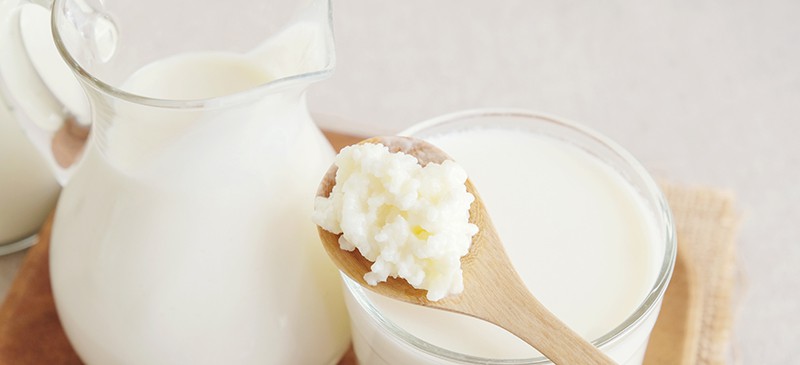This Dr. Axe content is medically reviewed or fact checked to ensure factually accurate information.
With strict editorial sourcing guidelines, we only link to academic research institutions, reputable media sites and, when research is available, medically peer-reviewed studies. Note that the numbers in parentheses (1, 2, etc.) are clickable links to these studies.
The information in our articles is NOT intended to replace a one-on-one relationship with a qualified health care professional and is not intended as medical advice.
This article is based on scientific evidence, written by experts and fact checked by our trained editorial staff. Note that the numbers in parentheses (1, 2, etc.) are clickable links to medically peer-reviewed studies.
Our team includes licensed nutritionists and dietitians, certified health education specialists, as well as certified strength and conditioning specialists, personal trainers and corrective exercise specialists. Our team aims to be not only thorough with its research, but also objective and unbiased.
The information in our articles is NOT intended to replace a one-on-one relationship with a qualified health care professional and is not intended as medical advice.
Amasai: Probiotic Beverage that Boosts Immunity and Gut Health
June 10, 2016

Amasai is traditional, fermented milk beverage that is very similar to kefir. It has the consistency of a liquid yogurt and a tart, fermented taste that let’s you know it contains valuable probiotics.
A nutritional staple for most South Africans for hundreds of years now, amasai has recently come into the mainstream more as probiotic foods have continued to gain attention and praise for its gut-healing, immune-boosting properties.
What Is Amasai?
Amasai (also sometimes spelled amasi) is one of several fermented probiotic foods and beverages commonly consumed throughout South Africa. Fermentation has a long history in Africa as a means of preserving foods naturally, even without conveniences of modern life such as freezing or refrigeration.
The process of fermenting foods — including dairy products in the case of yogurt, amasai and kefir —produces beneficial bacteria that we refer to as “probiotics.” Amasai’s taste is described as a cross between cottage cheese and plain yogurt; as with other fermented/sour foods, most people say that you either love the taste or hate it.
Richard Mokua is native South African who has spent years studying traditional African foods, especially those originating from Kenya where fermentation is utilized to prolong food’s freshness despite high heat temperatures and lack of cooling systems.
In 2004, as a master’s student in Wisconsin, Mokua undertook an investigation into amasai and its impact on children and diarrhea. He had noticed growing up in Kenya, that children who regularly consumed this beverage had noticeably less frequent bouts with diarrhea. His mission was to discover what it was, if anything, in amasai that contributed to this occurrence.
At the time of starting his work, Mukua didn’t realize that the children’s consumption of probiotics were the reason they experienced better digestion and other health benefits. The scientific community today gives recognition to the fact that high probiotic foods help protect the body against diarrhea (the same theory that Mokua eventually proposed).
What are probiotics exactly you might be wondering? They are “good bacteria,” and amasai is loaded with several kinds, including the lactic acid bacteria called lactobacillus. Mokua eventually decided to put his theory to the test with the deadly strain of bacteria called E. coli. He theorized that amasai could kill off even E. coli and, therefore, protect people living in rural areas from foodborne illnesses. And he was right!
Today, years later, research is continuously revealing to us that probiotic foods help with a range of health concerns:
- Probiotics improve digestive functions, including reducing constipation, bloating and diarrhea
- They can boost immunity and offer increased protection against cancer, allergies, parasites, infections and illnesses. (2) One study done in Colombia found that treatment with probiotic strains could result in a 60 percent reduction in certain type of intestinal infection that affects children and can cause mortality in some cases (3)
- Probiotics have been correlated with better cognitive functioning and protection against dementia and Alzeimer’s disease
- They also play a role in regulating hormones, including those that control appetite, satiety and body weight
Nutrition Facts
Although there are different strains of amasai eaten around the world today, all seem to deliver similar benefits to the kind consumed in Africa. Each strain of amasai is dependent on several factors, including what type of container it’s fermented in, how long the fermentation period lasts, the type of dairy used to make amasai, and also the type of bacteria “starter” used.
Just like with probiotic yogurt, these factors affect how amasai tastes and appears, and also how concentrated it is with probiotics. Therefore, the method of fermentation partly determines how much of an impact amasai might have on your health.
One cup of amasai (8 ounces, or 240 ml) that’s made with whole cow’s milk has about: (4)
- 170 calories
- 8 grams protein
- 11 grams fat
- 7 grams sugar
- 10 grams carbohydrates
Amasai is a good source of nutrients including:
- probiotic bacteria
- protein
- calcum
- B vitamins
- vitamin A
- iron
- magnesium
- potassium
- omega-3 fatty acids and CLA

Related: Raw Milk Benefits Skin, Allergies and Immunity
Health Benefits
Probiotics are praised most for their role in improving gut health. Amasai is good for your entire GI tract, particularly if you’ve been on antibiotics or have had a problem with something you ate producing stomach issues including diarrhea. Along with the benefits that other types of probiotics bring, amasai is good for the following:
1. Better Immune System Function
The GI tract plays an important role as an interface between the body and its environment. (5) Probiotics populate in your gut (GI tract) and help control hormone production along with inflammation. They come into contact with various outside bacteria, viruses, yeast and fungus that enter the body everyday.
These kinds of healthy bacteria are short-lived, so it’s best to repopulate the gut often by regularly consuming the best sources of probiotics. It’s also wise to consume “prebiotic” foods which help probiotics to live longer and repopulate, including artichokes, asparagus, berries, bananas and yams.
How can consuming probiotics help improve your overall health? Several of the ways they do include: producing vitamin B-12, butyrate and vitamin K2; crowding out bad bacteria, yeast and fungi; creating enzymes that destroy harmful bacteria; and regulating secretion of IgA and regulatory T Cells that lowers inflammation.
Evidence shows probiotics can help increase immune function by:
- reducing allergies, flu and colds
- reducing overuse of antibiotics
- preventing cavities and gum disease
- combating infections and antibiotic-resistant bacteria
- treating liver disease, ulcers and kidney disease
- battling cancer
- lowering risk for learning disabilities and autism
- lowering cholesterol
- treating skin inflammation and acne
- helping with weight regulation
2. Improved Digestion
According to the journal Frontiers in Microbiology, probiotic foods like amasai can help with a range of digestive problems, from constipation and acid reflux, to bloating and diarrhea. (6)
One type of probiotic called Lactobacilli is especially good at converting carbohydrates in your diet (including a type of called lactose which is found in milk and dairy products) to other acids, which helps improve overall metabolism and digestion.
When carbohydrates from your diet aren’t properly broken down they can lead to symptoms including gas, bloating and other signs of intolerance. That’s why people with issues like IBS, SIBO or sensitives to things like FODMAP foods can benefit greatly from consuming probiotics.
3. Reduced Risk for Age-Related Health Problems
A report published in Frontiers in Cellular Neuroscience showed that by reducing inflammation, increasing nutrient absorption, helping with neurotransmitter production and balancing hormones, probiotic foods have been found to improve cognitive health and offer protection from diseases like Alzheimer’s and dementia. (7)
Probiotics alter inflammatory cytokine profiles and down-regulate pro-inflammatory cascades that can damage the brain, nerves and blood vessels.
How to Make
Although the benefits of amasai are becoming more known, it’s still hard to find it in many grocery stores. Therefore, the more practical way to consume amasai regularly would be to make it yourself at home.
The way that amasai is created is a traditional, long-used method of dairy fermentation. Cow’s milk is placed into a gourd or other container, a bit of amasai from a prior batch is added, and the combination is left to ferment. The process of making amasai is similar to making yogurt and kefir in many ways and easy to do once you get the hang of it.
Here are several things to keep in mind if you want to try making your own homemade amasai:
- To make amasai you will need cow’s milk (preferably unpasteurized, whole, organic and grass-fed Jersey or Guernsey cow breeds) plus a starter which contains bacteria. The easiest way to obtain a starter is to use previously made amasai that’s already fermented, or to purchase a starter kit online.
- As the substance ferments, the whey portion of the milk is drained off, and what remains is a thick, curdled type of beverage. This can take anywhere from several hours to a day, during which the amasai is left out of the refrigerator.
- Combine the amasai and starter (or older amasai) in a container and let it sit at room temperature for 10–12 hours. Some reports show that traditional preparation required leaving it to ferment for up 2 whole days. (9) You can then store it in the refrigerator for 2–3 weeks.
- Once amasai undergoes fermentation, it can be used to create the next batch of amasai. Bacteria are passed from one fermented food to another as they continue to repopulate by “eating” certain substances found in dairy.
- Another factor to consider is the treatment of the container used to ferment the beverage. For instance, some people don’t clean their amasai container in any way between making batches, others simply wipe it out, and still others use hot water to rinse it out thoroughly. Each method will impact what strain of amasai you end up with, the flavor and the nutrition profile. In addition, some communities smoke the inside of the gourd while others wash it out with wood ash. There are many ways this process is treated, each resulting in a slightly different strain of amasai.
- Eat your amasai on its own (with added raw honey to sweeten it if you’d like), with fruit, or in any other way you’d have kefir or yogurt.












